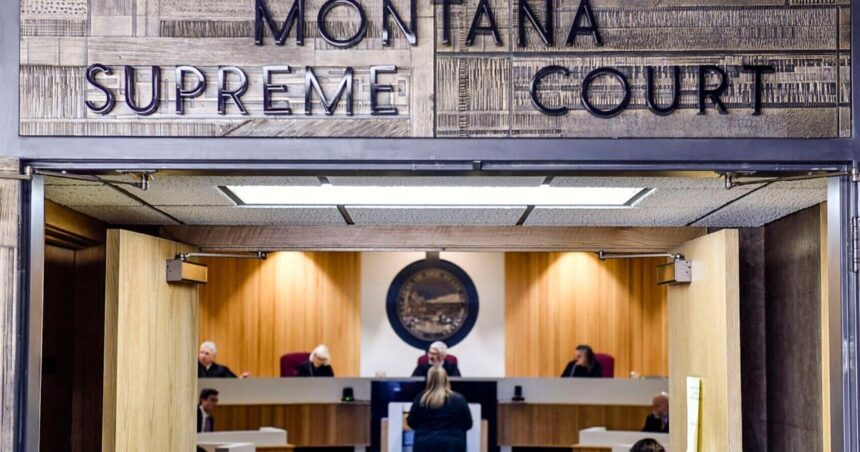In a 4-3 decision, the Montana Supreme Court ruled that Anaconda police justifiably believed a man was potentially armed and suicidal and didn’t violate his privacy rights by entering his home without a warrant.
An officer shot and wounded William Trevor Case during the incident and a jury ultimately found Case guilty of assault on a peace officer because he pointed a pistol or what appeared to be a pistol at police.
Case
Case appealed, claiming police had no right to enter the home and anything that happened once they did should be suppressed as evidence. That included events that prompted the shooting and a handgun found near Case.
The majority of justices found otherwise in a ruling issued late Tuesday afternoon.
Montana has “heightened privacy protections” but in this case, police believed Case was in peril and needed help and the circumstances fit a narrow “community caretaker” exception allowing warrantless entry, justices said.
People are also reading…
-
…
Police were responding to a potential suicide — “a non-criminal but imminently perilous situation” — that justified going into the home, the ruling said.
“The officers’ decision to do so here was calculated and it was appropriate to mitigate the risk of Case’s suicide or potential injury,” Justice Mike McGrath wrote in the ruling.
The court had only applied the “caretaker doctrine” to a warrantless entry in one previous case and the circumstances were similar, he said.
Justices James Jerimiah Shea, Beth Baker and Jim Rice joined McGrath in the majority opinion. Justices Laurie McKinnon, Ingrid Gustfafson and Dirk Sandefur dissented.
According to the dissent opinion, police didn’t have sufficient probable cause or exigent circumstances to go into the home. The request for help came from an ex-girlfriend to Case and did not give officers “an open-ended license to enter a home without a warrant,” the dissenting opinion said.
…
Mike Smith is a reporter at the Montana Standard with an emphasis on government and politics.





